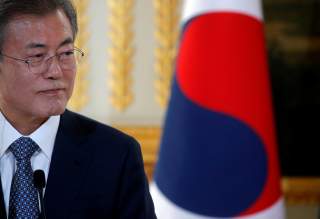Will Washington Create the Next Korea Crisis?
Does Washington expect Seoul to choose between its economic and security interests?
If this eventuality comes to pass, the United States will face a complicated task in selling its continued U.S. forward-deployed military presence in South Korea. The temptation for policymakers would be to argue that China cannot be trusted in Northeast Asia, and that the U.S.–South Korea military alliance would provide critical protection against China. This is true, but risky, as Washington would be asking Seoul to choose between its economic and security interests. Another argument is found in the U.S.-South Korea mutual-defense treaty, which is promulgated “pending the development of a more comprehensive and effective system of regional security “in the Pacific area.” This would also be problematic, but if answers to security issues in Northeast Asia were easy, we would not be where we are today.
Mason Richey is associate professor of international politics at Hankuk University of Foreign Studies (Seoul, South Korea). His current research analyzes Asia-Pacific security dynamics and U.S. and European foreign and security policy in East Asia. His recent writings have appeared in Global Governance, Foreign Policy Analysis, Asian Security, the Asia Europe Journal, Le Monde, Forbes, the Sueddeutsche Zeitung and International Politics and Society. Image: Reuters

